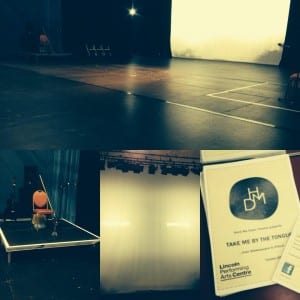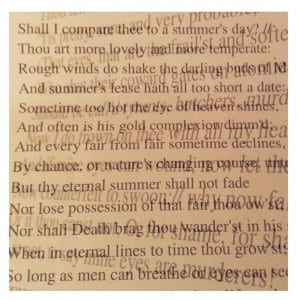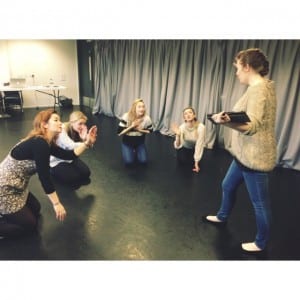As Director, my vision for Hand Me Down Theatre’s direction in the future seems that, given our wide scope of contemporary practices and texts that our manifesto allows us to experiment with, our practices have no limit. Following our successful debut performance of ‘Take Me by the Tongue’, my Director’s Note clearly stated how our dynamic contemporary practice is accessible to a wide range of audiences, thus launching our company into the world of theatre.
Maria M. Delgado discusses the Romanian director Silviu Purcarete and his ‘reputation for working in European theatre through theatrically exciting adaptations of classical texts’. (2010, p. 87) Looking to European practices to influence my Directing role in Hand Me Down will extend the themes experimented with as well as make our company develop and entice another range of audiences not only in age, but culture. Delgado writes of Purcarete’s politically driven theatre, stating that
He uses the dramatic text as a starting point for a theatricality that is founded on the combination of expressive acting, visually powerful images, physical movement, strong colours and rhythmical sounds and music to communicate human experiences. (2010, p. 87)
This form of theatre is committed to self-investigation and questioning, which is arguably what theatre encompasses. Yet through incorporating these contemporary elements that add to the theatricality of performance, this would be elaborating more on Hand Me Down’s manifesto. Making this transition towards contemporary European theatre, or rather drawing inspiration from other theatre companies in this field, would require myself questioning Hand Me Down Theatre’s position in the UK as a theatre company and how I see my role as Director and Dramaturg making our mark in British Theatre.
For emerging companies the Arts Council England discuss in their ‘Self-Evaluation Framework: Reasons to Exist’ the fundamental aspects Artistic Directors of companies must question themselves in terms of their manifesto:
Questions you might ask yourself
-
Why do we exist and for whom?
-
Do all our activities contribute to the achievement of our vision? If not, why are we doing them? (Arts Council England, 2013)
These are questions that, as a Director, are mandatory to focus on and maintain as the development of a theatre company progresses from amateur to professional. In answer to the first question, it is clear to me that we exist to educate and inspire audiences as well as ourselves of texts that may not be credited as well as questioning the meaning of credited texts for that matter, constantly attempting to alter perceptions. The second question however, is slightly trickier to answer in that as a devising company often the activities we experiment with become apparently redundant once our process has progressed. However this is arguably the beauty of theatre as our vision remains the same, yet the contributions towards gettting there are often the absurd, extraordinary and at times ridiculous- but how else would we learn from our mistakes if they were not made? After all, John Ahart wrote that ‘any journey worth taking has its share of surprises.’ (2001, p. 13)
Works Cited:
Ahart, John (2001) The Director’s Eye, Colorado: Meriwether Publishing Ltd.
Arts Council England (2013) Self-Evaluation Framework: Reason to exist [online] Available Online: http://www.artscouncil.org.uk/selfevaluation/framework/vision/reason-to-exist/ [accessed: 15 May 2014]
Delgado, Maria M., and Dan Rebellato (2010) Contemporary European Theatrer Directors, London: Routledge.




